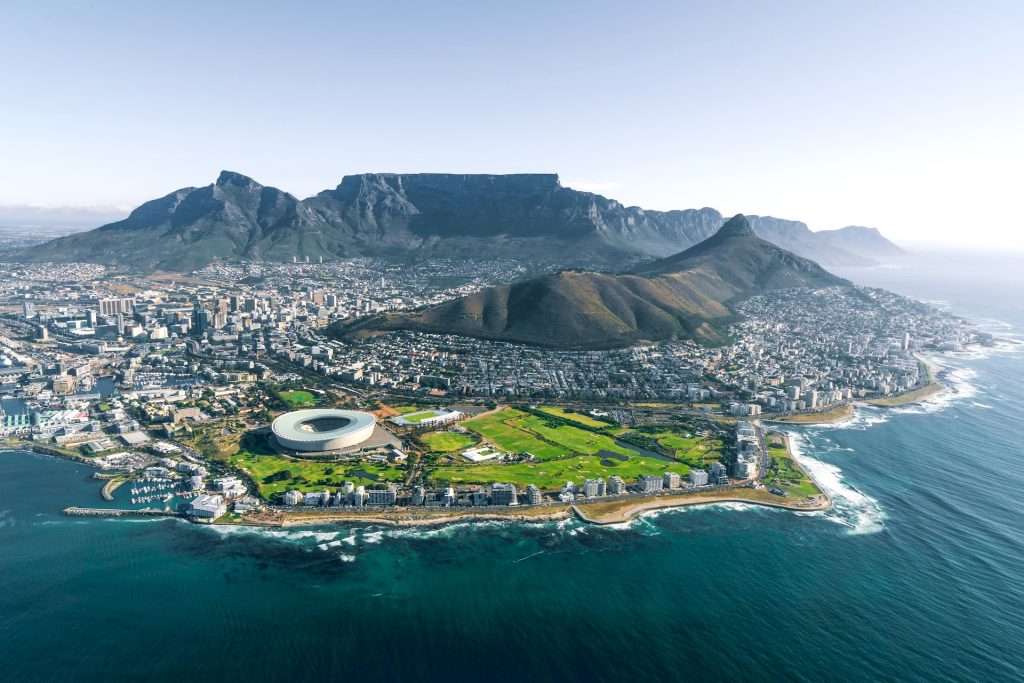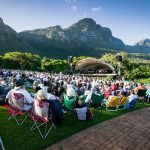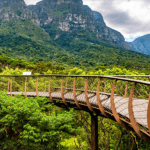Cape Town slang 101
In order to walk the Cape Town walk, you need to be able to talk the Cape Town talk!

With 11 official languages and an eclectic mix of cultures, slang and colloquialisms are prolific in Cape Town. The Mother City is known for her wildly unique and incredibly colourful language, full of colloquialisms, common sayings, verbal gestures, and a melting pot of words.
To take it another step further, Capetonians are constantly coming up with new words and absolutely love coining cool new phrases. This means you always have to have your ear to the ground, especially if you want to keep up with the Capetonians.
So, if you’re planning a trip to Cape Town, if you’re new to the city, or if you simply want to brush up on your bantering act, then look no further. We’ve put together a beginner’s guide to Cape Town slang, colloquialisms, and common sayings.

Are you ready to talk the Cape Town talk like a real Mother City local? Here we go!
- Aweh / Awê – Hello / Yes / What’s up?
- Lekker – Good / Tasty / Great
- Brah / Bra / Bru / Boet / My boy – Dude / Bro / Friend
- Chommie / chomma / chomza – Friend / bestie / buddy
- Kwaai – Cool
- Yoh – Wow / Exclamation
- Eish – An emotive word used to describe anything from shock to awe or disapproval
- Gees – An Afrikaans word for “spirit” often used to describe a great vibe
- Howzit – How is it going?
- Mzansi – isiXhosa word for “south”, lovingly adopted as our unofficial name for South Africa
- Aitsa / Aitha – Impressive
- Kiff – Cool
- Ayoba – A word of approval that’s cooler than cool and better than great! Could also be a greeting if you’re having a lekker day.
- Shisa Nyama – To braai or barbeque meat or a place where you eat braaied meat and have lots of nice drinks
- Now now – A South African unit of time that can mean anything from right now, just now, in a while, depending on context
- Babbelas – Hangover / hungover
- Braai – Barbeque
- Jas – Crazy / Mad / Epic
- Are you jas? – Are you crazy / mad?
- Eksô Joe – Why?
- Ag – An expression of irritation or resignation
- Shame / Shem – A much-used phrase to express all kind of emotions like sympathy, empathy, tenderness or regret
- Mooi – Beautiful / pretty
- Motjie – Girlfriend / Wife
- My Lief/ My Liefie (leaf) – My Love
- Entjie – Cigarette
- Tiep – Sleep
- Zikiphani – What’s up?
- Gebba – A gatsby
- Dala – Do / Kiss
- Dala what you must – Do what you must do
- Senti – Sentimental
- Naar – Naueseous
- Zikiphani – What’s up?
- Duidelik – Cool / Awesome / great / hip / dope
- Kancane – Stop
- Dyt – Food
- Permi – Always / Permanently
- Ek sê / Eksê – Afrikaans for, ‘I say’. Used either at the beginning or end of a statement
- Mfe2 (Mfethu) – Dude / Bro / Friend
- Zamalek – Carling Black Label (beer)
- Vuil dyt – Greasy / Junk Food
- Siesa – Well done / Impressive
- Gaatjie – The person who opens the doors and leans out of the window to shout the taxi’s destination to potential passengers. This person also collects the fares and is an essential part of Cape Town taxi culture
- Robots – How South Africans say “traffic lights” because “traffic lights” is too long and doesn’t sound futuristic enough
- Eina – An exclamation used when pain is experienced / ‘ouch’!
- hhayi-bo (isiZulu) / hayibo (isiXhosa) (haai-boh) – An interjection meaning ‘hey’; ‘no way’
- Is it? – Used as acknowledgement of a statement, but not to ask a question – as one might assume / Most closely related to the English word ‘really’
- Ja (yaah) – Afrikaans for ‘yes’
- Ja-nee (yah-near) – Afrikaans for yes-no / Meaning ‘Sure!’ / ‘That’s a fact!’ / Usually used in agreement with a statement
- Jol – A party / having a great time
- Jislaaik – An expression of astonishment
- Sisi (see-see) – Derived from both isiXhosa and isiZulu words for sister, usisi and osisi
- Takkies – Trainers / sneakers / running shoes
- Vrot – Rotten / most often used to describe food that’s gone off or a state of being sick
- Voetsek – Afrikaans for ‘get lost’, much like the British expression, ‘bog off’
- Wena – isiXhosa and isiZulu for ‘you’
- Wys – Show / tell / describe
**Important note: Much of the credit for the area’s broad spectrum of slang and colloquialisms is owed to the coloured people from the Cape Flats, a population vibrant in every way, but most famously, for the in the way in which they communicate. Though, ultimately, words, sound bytes and sayings from all of the nation’s official languages inject themselves into casual conversations, potent road rage and cheesy pick-up lines.





